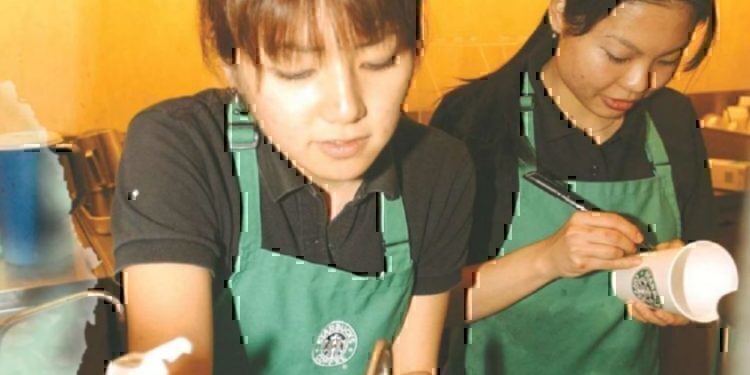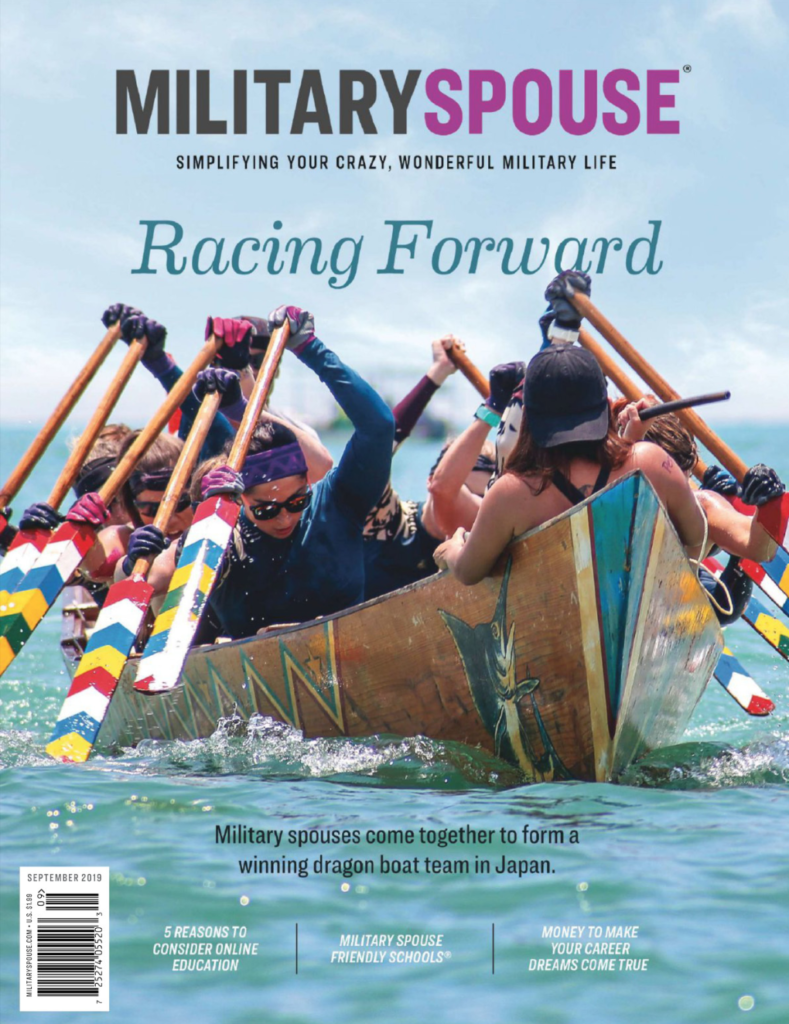By Capt. Scott C. Gibney, U.S. Navy (Ret.), Co-owner of Gibney College Solutions LLC
See inside the September issue of Military Spouse Magazine:
For many, a college education is part of the American dream but the cost may be too high for some to achieve this goal.
Estimates show that about 50% of students who start their college education don’t complete it. Why? The cost of a degree is one of the top reasons. Starbucks is hoping to help. Here’s how:
What: Rising College Costs.
The cost of attendance continues to rise at colleges across the country. Some private schools now charge more than $70,000 per year. Many public colleges have raised tuition and other expenses due to the reduction in funding from state governments.
Who: Full-Time and part-time employees.
With almost 15,000 store locations in the United States, the Starbucks twin-tailed mermaid welcomes millions of coffee drinkers each day. Those drinks are served by employees, better known as partners.
Many of these partners are members of the military community. Since 2013, Starbucks has hired more than 25,000 military spouses and veterans and recently announced that they will hire 5,000 more each year. Starbucks has also joined the Hiring 100,000 Military Spouses campaign in addition to its own hiring goal. Along with those hiring commitments come some great benefits, including the opportunity for a partner to earn their undergraduate degree.
How: Starbucks College Achievement Plan.
The Starbucks College Achievement Plan (SCAP) is open to every benefits-eligible United States partner working full or part time at a Starbucks-owned business. The benefit covers 100% tuition for a first-time bachelor’s degree through Arizona State University’s (ASU) online program.
U.S. News and World Report ranked ASU as the most innovative school in the nation for four straight years. ASU’s partnership with Starbucks was an important consideration for the top ranking. Eligible Starbucks partners can choose from more than 80 of ASU’s online bachelor’s degrees, from anthropology to women and gender studies, as well as business, STEM and healthcare programs.
Scholarship details.
ASU provides a 42% scholarship toward the undergraduate tuition each semester. As part of the program, eligible Starbucks partners must complete and submit the Free Application for Federal Student Aid (FAFSA). Submission of the FAFSA will allow the participant to take advantage of any federal or institutional aid that might be offered.
At the end of each semester, Starbucks reimburses partners, through their paycheck, for any tuition costs that were not covered by need-based financial aid. It should be noted that reimbursement doesn’t cover costs such as class fees, books or supplies.
The ASU website notes, however, that “most partners discover that their financial aid will finance these additional costs.” Living expenses also need to be considered separately. ASU has financial aid counselors who can walk Starbucks partners through the process.
HERE’S WHAT YOU NEED TO KNOW:
All SCAP participants must be benefits eligible. Starbucks states that “Part-time partners establish initial benefits eligibility the first day of the second month after receiving a minimum of 240 total hours over three full, consecutive months.”
The program is for first-time bachelor’s degrees through Arizona State University’s online program. ASU has Enrollment Coaches that can help prospective students learn about the enrollment process, degree programs, and financial aid. Advisors can help determine any costs that may have to be paid upfront and prior to Starbucks providing reimbursement.
Once you have researched the program and understand how the scholarship works, you can apply to ASU through its website: www.asu.edu. After being admitted into ASU, an academic advisor will help the student choose their major specific classes. There are six ASU start dates every year for its online students – two each in the fall, spring and summer semesters. It is recommended to complete the application process at least one month prior to the intended start date.









